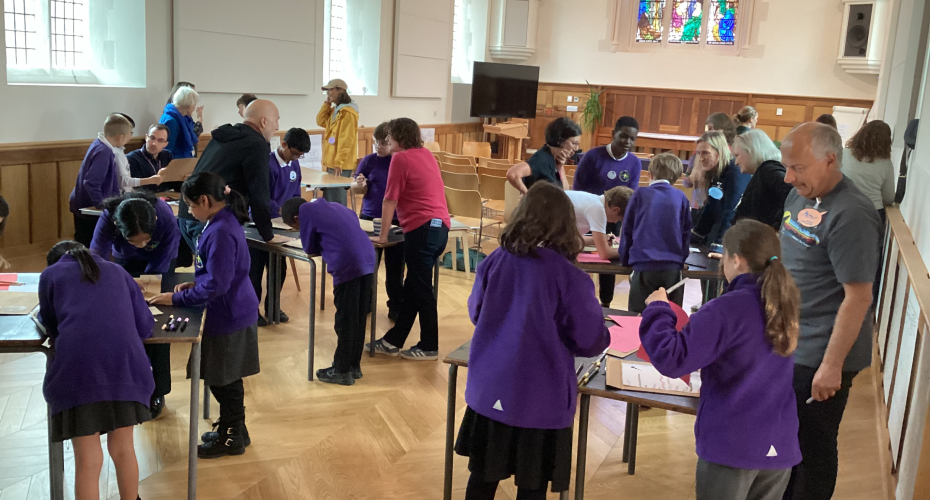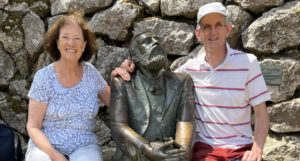Climate science workshop brings together schoolchildren and world-leading researchers
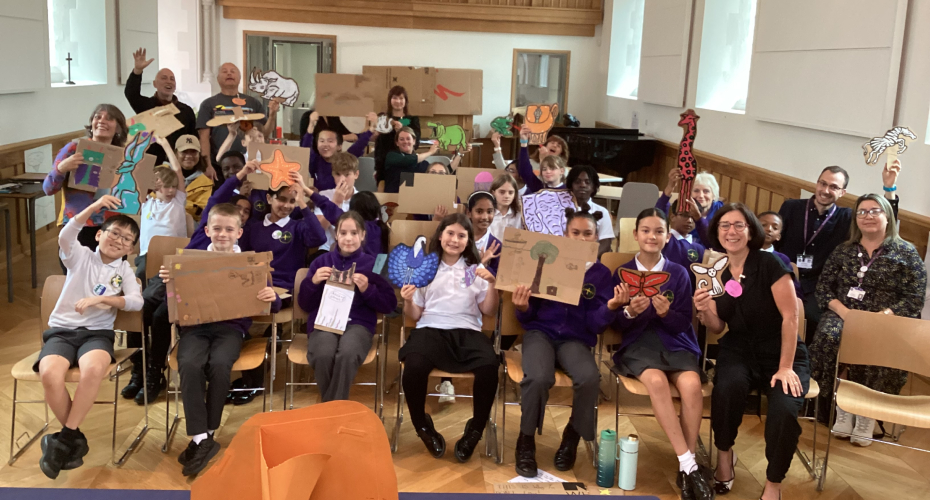
Pupils at an Exeter school have engaged with some of the world’s most renowned climate scientists at a special day-long workshop.
Year six children from St Sidwell’s Church of England Primary and Nursery School were guests of the University of Exeter, where they quizzed environmental scientists about climate change.
They also worked with international cardboard theatre company Hamishibi to create their own stories around the planet’s health before proudly presenting them to staff and classmates.
The event was organised by the University’s School of Education and the Schools Across the Ocean (SATO) programme, which is funded by the British Council and brings together schools in a twinning arrangement to learn collaboratively about the climate.
“We were thrilled to welcome the children from St Sidwells, for what proved to be an exceptionally stimulating and fascinating day,” said Anita Wood, Senior Lecturer in the School of Education, and Programme Lead for SATO. “They were really open in the questions they asked, and it was clear through the stories they chose to tell that they are engaged with the climate and are very creative in how they express and communicate that engagement.”
More than 20 schoolchildren were invited to the University’s St Luke’s campus for the event, where they met five renowned climate scholars and listened to talks on several topics, including whales and yeti crabs.
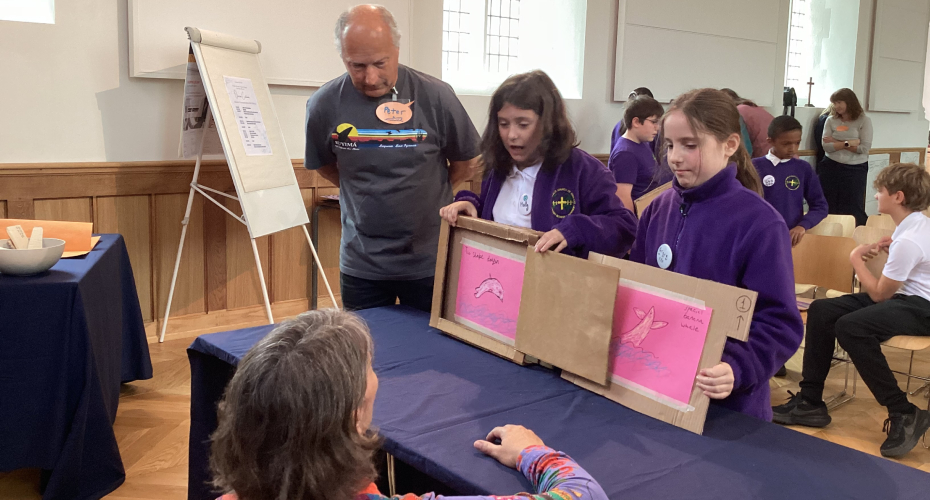
Among the academics taking part were Professor Peter Stott, author and Science Fellow in Climate Attribution at the Met Office; and Professor Ceri Lewis, a marine biologist in the University’s Department of Biosciences. All of them spent time with the children, answering questions on different aspects of the planet’s environment, and engaging with the cardboard workshop led by Argentina-based Hamishibi. Here, the children worked with the team to create three cardboard slides for their ‘theatre’, which they later presented to the room as a story.
Jack Walden, Year 6 teacher at St Sidwell’s, and a graduate of the University, said the day had been a valuable learning experience for the children.
“It was inspiring for the children to come onto campus, to get a sense of what a university is, and to hear from Exeter’s academics,” Jack said. “And this type of intergenerational, multidisciplinary forum is so valuable as a learning experience for young people, and particularly for some of our children for whom English is a second language.”
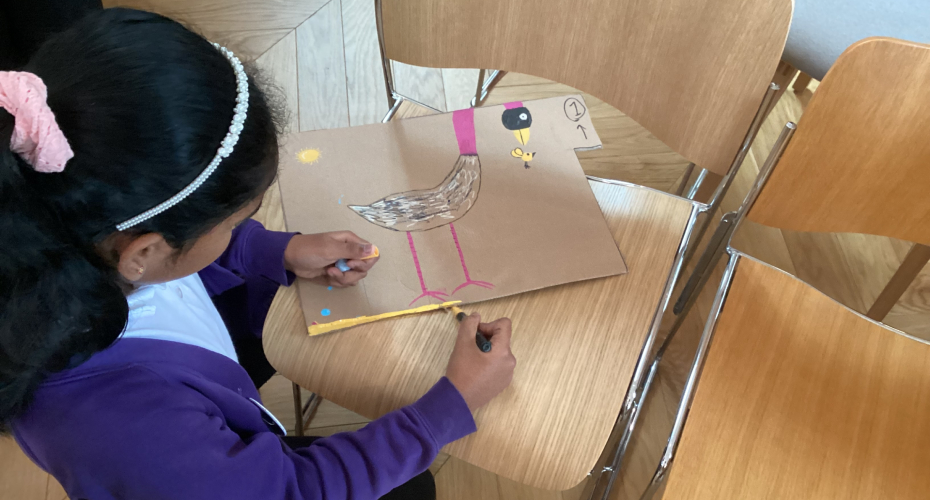
St Sidwell’s has been one of the schools that has supported Schools Across the Ocean programme, a global education programme empowering teachers and children aged 8-12 to explore climate and ocean literacy.
Launched by the University and partners ahead of COP28, this expanding network has now reached more than 3,000 children in the UK, UAE, Azerbaijan and Brazil – the four most recent hosts of the UN’s COP climate conference.
“At a time when many national curricula do not refer to climate change, it is vital that we engage young minds with what is happening to our planet,” said Dr Sally Flint, Creative Director of We Are The Possible, the award-winning, transdisciplinary programme that is bringing art, education and culture, heritage and health into the realm of climate action.
“Today was about storytelling and creating a safe space for the children to explore their questions about the climate. By empowering them to tell their own story, we can help them develop resilience and confidence that they can make a difference in the future.”
For more details about We Are The Possible and SATO, visit the University’s GreenFutures website.
